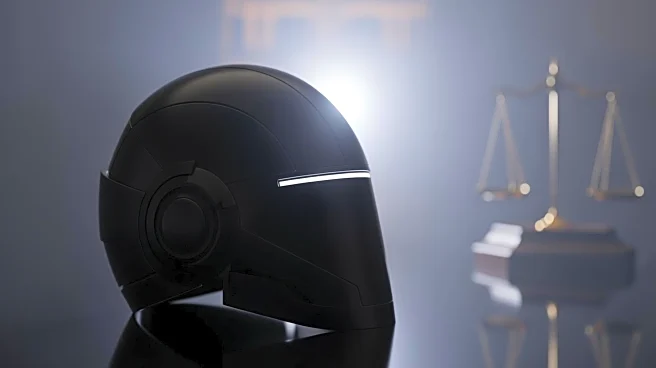What's Happening?
Sam O'Hara, a Washington resident, has filed a federal lawsuit against the District of Columbia, claiming his constitutional rights were violated when police detained him for playing 'The Imperial March'
from Star Wars while following Ohio National Guard troops. The lawsuit, supported by the American Civil Liberties Union, alleges that O'Hara's First Amendment rights to free speech and Fourth Amendment rights against unreasonable seizures were infringed. O'Hara, who did not interfere with the troops, was handcuffed for 15 to 20 minutes before being released without charges. The incident occurred during President Trump's deployment of National Guard members in Washington, D.C., following an executive order declaring a crime emergency.
Why It's Important?
The lawsuit highlights ongoing tensions between Washington, D.C. residents and federal law enforcement actions under President Trump's administration. The deployment of National Guard troops has been controversial, with critics arguing it undermines the autonomy of the district and sets a dangerous precedent for military involvement in civilian policing. The case underscores the broader debate over civil liberties and government authority, particularly in heavily Democratic areas like Washington, D.C. The outcome of this lawsuit could influence future policies regarding military presence in civilian areas and the protection of constitutional rights during protests.
What's Next?
The lawsuit is assigned to U.S. District Judge Timothy Kelly, who was nominated by President Trump. The case could lead to significant legal precedents regarding the balance between national security measures and individual constitutional rights. The District of Columbia Attorney General has already sued to end the deployment, indicating potential legal battles ahead. Public and political reactions may further shape the discourse on military involvement in civilian matters, potentially influencing future executive orders and legislative actions.
Beyond the Headlines
The cultural symbolism of using 'The Imperial March' in protests reflects a growing sentiment among some citizens who view federal actions as authoritarian. This case may also spark discussions on the role of creative expression in political protests and the limits of government response to such demonstrations. The lawsuit could become a focal point for civil rights advocacy groups seeking to challenge perceived overreach by federal authorities.









